International Arbitration Newsletter - November 2020 | Regional Overview: Asia Pacific
The most relevant Asia Pacific updates from the global International Arbitration and ADR practice group at Garrigues.
AUSTRALIA
Australian pharmaceuticals company wins cancer treatment dispute
An ICC tribunal has issued an award upholding the claim filed by Australian pharmaceuticals company,AOP Orphan Pharmaceuticals (AOP), against its Taiwanese partner named PharmaEssentia Corporation (PharmaEssentia) in disputes arosing from the termination of a license agreement to develop and commercialize a blood cancer treatment.
The tribunal awarded AOP a compensation that amounts to €150 million, as well as a declaratory relief of approximately €1.3 billion, and dismissed the counterclaim filed by PharmaEssentia.
In 2009, in order to develop and commercialize BESREMi, a drug used as treatment for blood cancer, AOP and PharmaEssentia concluded the agreement, under which PharmaEssentia had to provide AOP with the substance for the drug for AOP to conduct the clinical trials to be able take the BESREMi to market. Upon the completion of the formulation, clinical and regulatory development of BESREMi in the European Union by AOP, in 2017, PharmaEssentia attempted to terminate the agreement.
In 2018, AOP sought remedy in an ICC arbitration requesting declaratory relief for the validity of the agreement and claiming damages for the delay on the project and the uncertainty caused by PharmaEssentia.
The ICC tribunal has now ruled the invalidity of PharmaEssentia’s termination of the agreement and ordered PharmaEssentia to pay AOP compensation, expenses and interests.
INDIA
Indian investor brings investment treaty claim against Mozambique
Indian investor, Patel Engineering (Patel) has filed at the Permanent Court of Arbitration in the Hague an UNCITRAL investment treaty claim against Mozambique for US$ 115 million over a project for the construction of rail and port.
Patel concluded a “Memorandum of Interest” with Mozambique‘s Ministry of Transport and Communications in 2011 for carrying out a study on pre-feasibility for a construction project valued US$ 3 billion in Mozambique to build a 500-kilometre rail corridor through a planned route stretching from Tete province to Macuse, where Patel intended to build a new port. As declared by Patel, the Ministry launched a public tender even though that, according to the Memorandum, the concession should have been be granted after the study was carried out. Patel participated in the tender despite this discrepancy, but in 2013, another bidder ended up winning the project.
After the Ministry’s rejection of his US$ 20 million request for damages, in March 2020 Patel filed a claim against Mozambique for US$ 115 million in compensation under the India-Mozambique BIT, insisting that Mozambique breached its fair and equitable obligations under the treaty.
Two months later, Mozambique filed an ICC contractual compensation claim against Patel based on the Memorandum.
SOUTH KOREA
POSCO Energy files counterclaim against US fuel cell manufacturer in licensing dispute
POSCO Energy (POSCO), the largest energy producer in South Korea, has filed a counterclaim for US$ 8.8 million against FuelCell Energy, a US fuel cell manufacturer. The counterclaim was filed in two pending arbitration proceedings before the ICC with regard to FuelCell Energy’s termination of a series of licensing and development agreements that granted POSCO exclusive rights for the distribution and service of FuelCell Energy’s proprietary “SureSource” fuel cell technology in Asia until 2023.
Under the agreements entered into by POSCO and FuelCell Energy between 2007 and 2012, POSCO had to pay FuelCell Energy royalties for its product net sales and the replacement of fuel cell modules in certain energy plants in Asia.
In November 2019, after failing to negotiate with FuelCell Energy over a joint venture that POSCO tried to set up between the parties as well as over an overhaul of the structure of their business, POSCO spun off its fuel cell business unit, Korean Fuel Cell, and assigned it its manufacturing and service rights under the agreement.
On the basis that this spin off constituted a material breach of the agreements, FuelCell Energy brought ICC arbitration proceedings against POSCO claiming damages of US$ 200 million. On the same day FuelCell Energy disclosed this filing, it terminated the agreements and requested POSCO to return all confidential information and know-how.
POSCO now alleges in its counterclaim that the termination of the agreements by FuelCell Energy was unilateral and invalid, as it was intended to enter the South Korean market avoiding consulting this entry with POSCO, which was mandatory under the agreements if Fuel wanted to independently advance to any Asian market. POSCO is seeking a declaration that both parties are still bound buy the agreements, as well as compensation for the damages caused by the breach of contract and an injunction preventing FuelCell Energy from to sell its products directly into the South Korean market outside of the licensing agreement.
VIETNAM
South Korean investor threatens Vietnam with investment treaty claim
South Korean real estate investment company, DWS Star Bridge (DWS), has served a notice to Vietnam, threating the country with a US$ 79 million investment treaty claim over what DWS alleges is a compulsory expropriation of its stake in a housing project in Ho Chi Minh City, known as The Mark Project.
Through two share purchase agreements concluded in 2016, DWS purchased 80% of the shares of VK Housing, the Vietnamese developer of the project. The remaining shares were held by a Vietnamese state entity called Housing Development and Trading (HDTC), which was later on bought by private shareholders. After that sale, HDTC claimed that the purchase of majority stake of VK Housing by DWS was forged and fraudulent and filed complaints before the country’s authorities.
DWS alleges that in 2017, at the request by the Vietnamese police, the Department of Planning and Investment in the Vietnamese city revoked the license obtained for the project. In 2018, HDTC won a lawsuit filed against DWS on the validity of the share purchase agreements and the project licenses before a Vietnamese court, which was subsequently upheld. DWS argues that the due process principle was breached by the court as it held an ex parte hearing without the company and ordered an injunctive relief against VK Housing.
The investment treaty claim is based on the South Korea-Vietnam Free Trade Agreement, which DWS alleges was breached by the actions carried out by Vietnamese authorities, police and courts, in respect to the treatment of foreign investments not less favorably than local ones, as well as regarding fair and equitable treatment and expropriation. However, DWS reserved its right to file the claim under a multilateral agreement between Southeast Asian nations and a bilateral investment treaty between South Korea and Vietnam.
Contacts
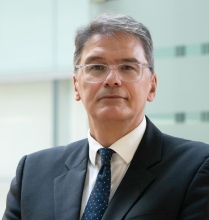
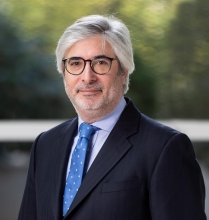
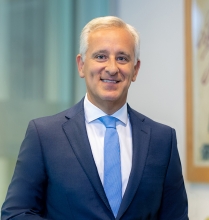
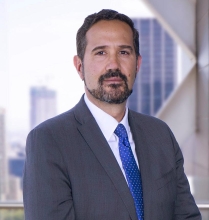
-
+52 55 1102 3570
-
+57 601 326 69 99
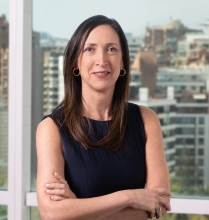
-
+56 2 29419000


